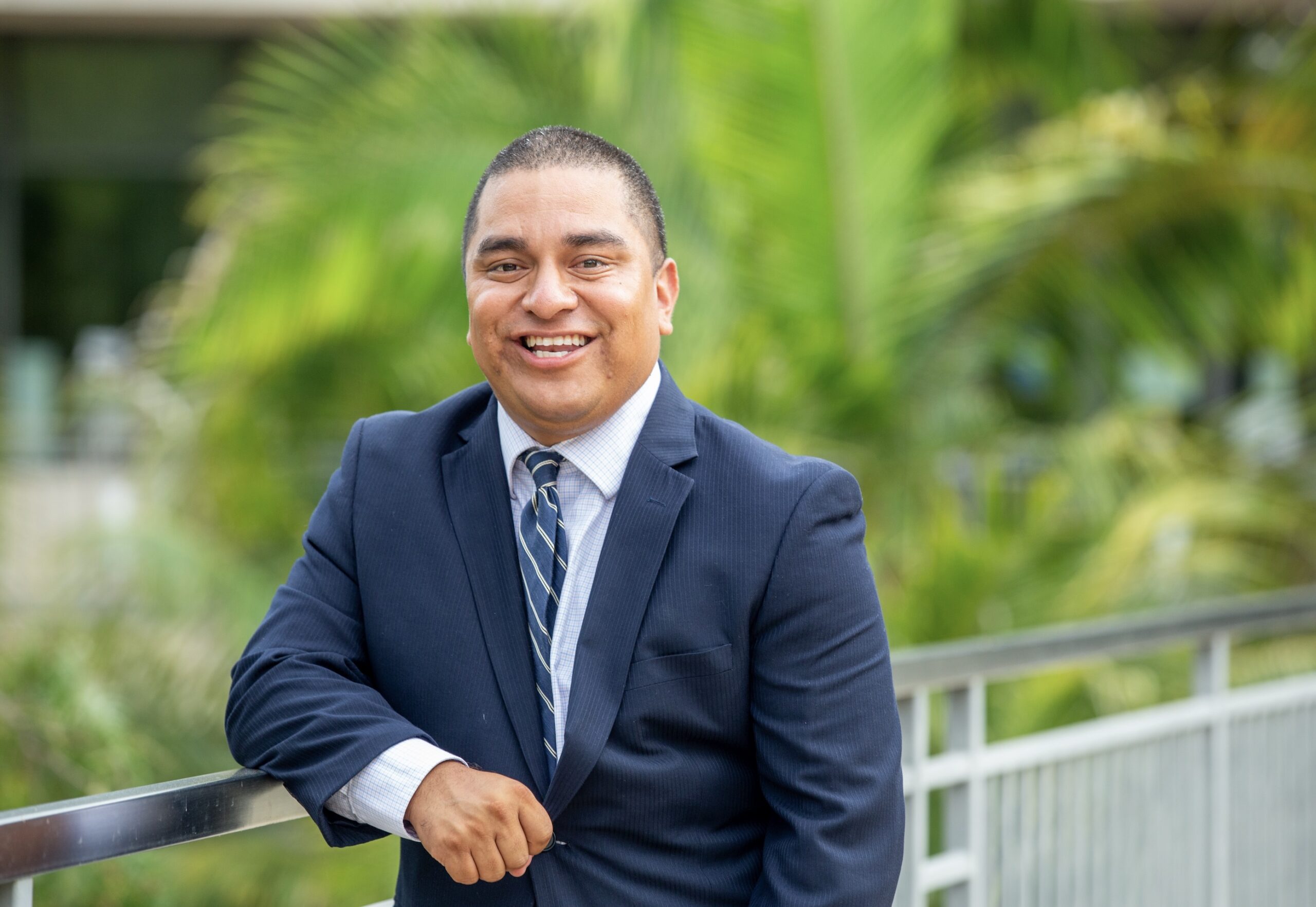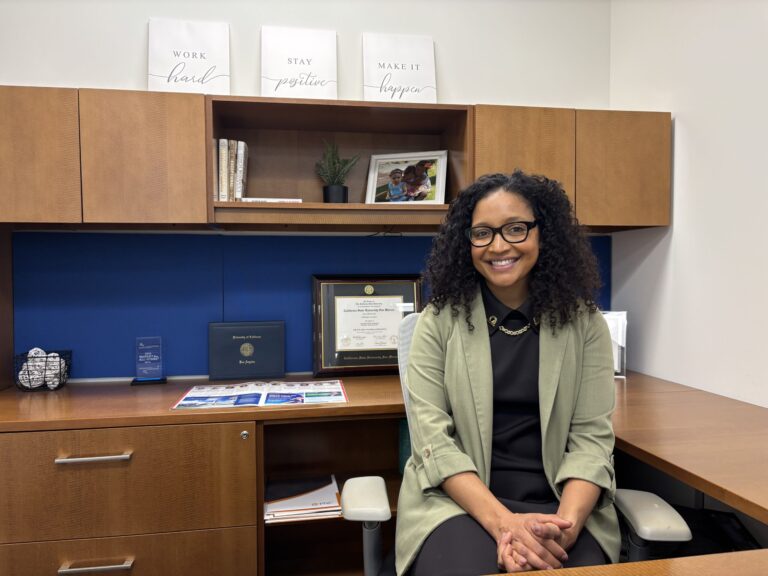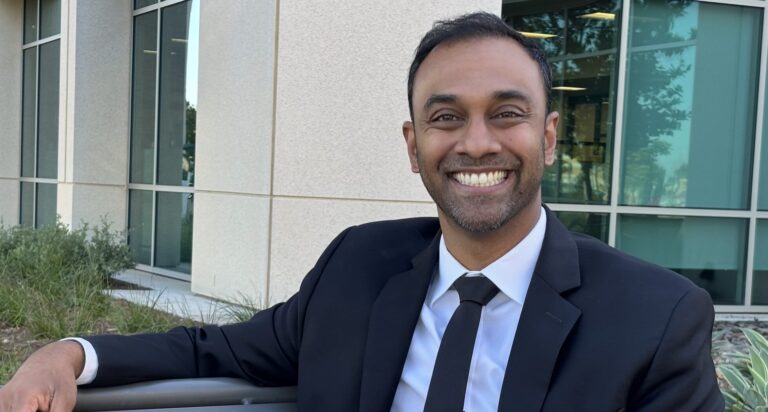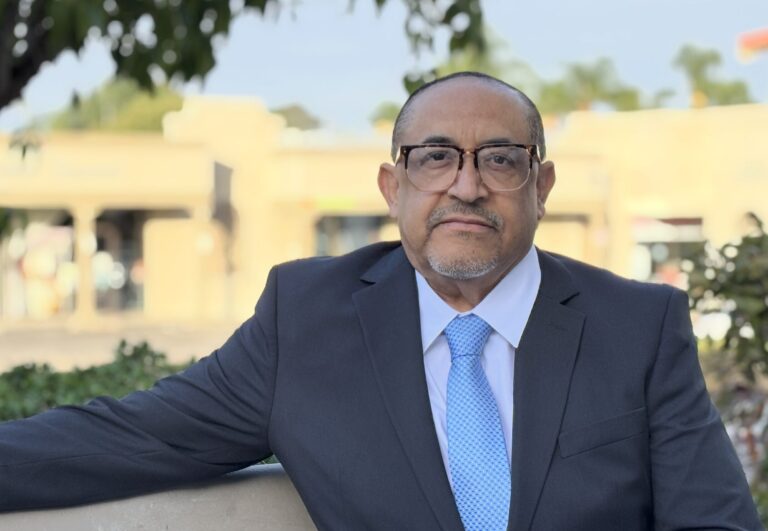By Melanie Slone
In his first semester as Cal State San Marcos (CSUSM), Cipriano Vargas had a 1.9 GPA. “I was put on academic probation,” he remembers. “It felt like a big failure to be the first in my family to go to college and then be on academic probation.” But it turned out to be his most important lesson.
Today, Cipriano Vargas is an elected school board member for Vista Unified School District, where he says he uses his political position to give back to the community.
“Behind every single accomplishment, there are challenges, there are stories of failure,” he says. “I could have been easily kicked out of Cal State San Marcos…I could’ve lost that first election and could’ve said, no, that’s not for me.”
Instead, he realized there is a whole community behind him. “Part of my success has been a community that I built, the friends I built, the social network I built.”
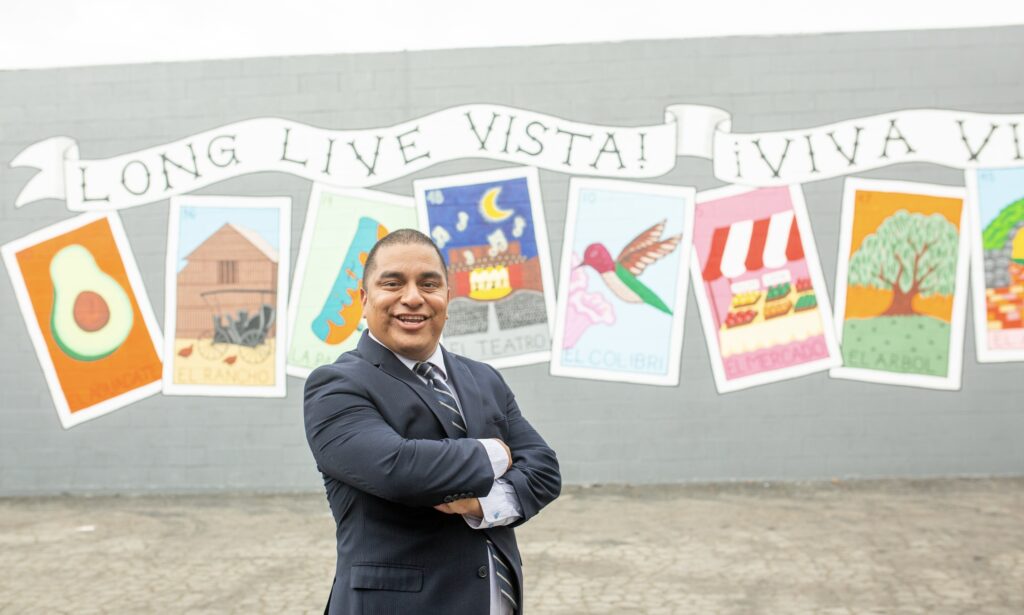
Advocating for Students
Cipriano grew up in Vista and attended Vista High. “Growing up as a student in the school district, there wasn’t the local leadership involvement as there is today.”
When he was at CSUSM, he noticed that tuition was going up and professors were furloughed, so they were teaching less. “I felt that as a student…we were paying more and it’s unfair.”
He started advocating for students and going to Sacramento. “That got me involved in many different activities,” he says. “
He credits the College Assistance Migrant Program (CAMP) with encouraging him do community service. And through MEChA, he took part in workshops, which he says helped “bridge the gap from the university to the community.”
Back then, Cipriano hoped to become a judge. But in his sociology major, he learned “about the injustices and inequalities…but not just in our criminal justice system…health care, education, the military, and so many other topics.”
It was an eye opener for him. “We have all this data, all this research, but somehow some policies that are in place are not working. So, how do we look at the policies and revisit them or adjust policies that work with the community?”
Facing the Struggles
Cipriano started school not knowing English. His father worked the strawberry fields in Fallbrook, and his parents were not able to be as involved in their eight children’s education as they would have liked. “They didn’t know the language, and they hadn’t graduated high school…they didn’t understand the process.”
Cipriano is grateful to CAMP for helping him fill out applications and FAFSA. They had counselors and even offered him a tour of the campus.
Today, there are many partnerships with local school districts that encourage students to apply to CSUSM. “This is our local university in our own backyard,” he says.
After graduating and spending two years teaching Spanish-language kindergarten in Texas through Teach for America, Cipriano returned to Vista and decided to run for the school board. Getting elected at 24 was a huge accomplishment, even without those years of professional experience. “I brought lived experiences of being in Vista Unified, of being a teacher, of coming from a migrant family.”
He is proud of the work he’s done in office. “What I wanted to see was that relationship expanded with our community.” He and his team have added bilingual community liaisons at every school in Vista, helped install a bilingual assistant principal and counselors, and rebuilt school facilities, among other projects.

Working with Mentors
Cipriano feels blessed to have met many mentors on the way, like Bill de la Fuente. When Cipriano was in high school, Bill noticed that many students, most of them Latinos, struggled to give oral presentations.
“They were successful individuals, but they weren’t prepared for public speaking,” says Cipriano. Bill partnered with Migrant Education to do a 10-week course, which became the foundation for Cipriano’s career in community service and helped him get connected to Latino community business leaders.
“I was fortunate to be one of the recipients of the Bill de la Fuente Scholarship… another reminder that there are people in the community that want to support you, that want to support first-generation college students, and that are the hopes and dreams of our community.”
Minerva González, the CAMP director at the time, was another of his mentors. She taught him balance in academics, leadership, and work.
Cipriano recommends mentorship for others. “These mentorships can be political, they can be social, they can be spiritual,” he says. “It’s instrumental in our youth to identify key leaders or people they want to be connected with because it does open many opportunities.”
Finding a Way
“I was the kid that sat in the back of the classroom that didn’t like speaking,” says Cipriano. But he joined the public speaking competitions held all over the county. “I didn’t go because I liked public speaking… that was my way of traveling and getting to know our region.” Along the way, he improved his public speaking, met new friends, and got involved in leadership.
For those students who don’t see college in their future, Cipriano says there are other paths to success. “I’m always going to recommend students go to college, without a doubt, but also we have students that become entrepreneurs, and we’re having those opportunities in our own high schools.”
Through a partnership with the Vista Chamber of Commerce, the school district provides internships for high school students with the local business sector. “As a high school student, I didn’t know what businesses were in our community. So, we’re providing all these additional opportunities at an earlier time, and it’s opening doors.”
He also talks about the social and emotional needs of children today. “A lot of it has to do with social media, just the environment there and the bullying.” But he says kids are resilient, “and we can provide all the resources, the counselors, the psychologists, the social workers, and we do our best to create welcoming environments.”
Getting Involved
“Every single student and every single youth has an experience that matters and that’s important…They all have the potential to do phenomenal things for our community,” says Cipriano.
The best way to get involved is through community service, especially on boards and commissions. “There are public meetings where people can come and give their testimony” on the environment, parks, traffic, tax oversight of the city audits, and much more. Young people who join these committees get to network with professionals and see if that’s what they want to do with their lives. Parents can also take part on commissions and committees in the school district.
There are no bylaws that require board and commission members to be citizens. And there is currently a person on the Environmental Commission for the City of Vista who speaks Spanish and is provided translation services. So, there is no excuse not to get civically involved.
“It can be intimidating, absolutely. But if there is interest, do seek out those opportunities,” Cipriano urges. “You have people from different perspectives, from different walks of life, and when decision making happens, it’s because of all these different opinions.”
Cipriano says he senses a stronger, more united, more connected community. “We definitely live in times of anxiety,” he says, but bridges are being built at the local government level, a sign that “we’re moving in the right direction,” he says.
Being civically engaged is a must, says Cipriano. “This is our community. If we’re not part of those decision-making bodies, somebody else is making those decisions.”

